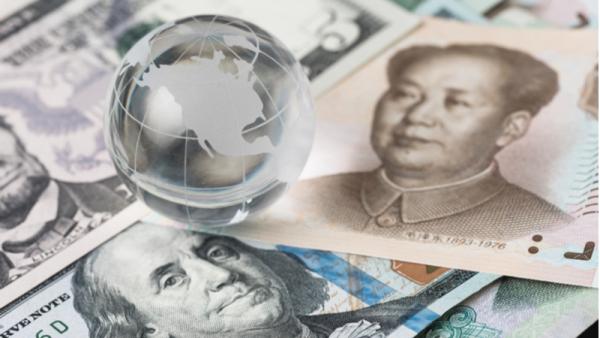eamesBot / Shutterstock

James Laurenceson, Director, Australia-China Relations Institute, University of Technology Sydney |
This article appeared in the South China Morning Post on December 2 2020.
As China piles on the trade pressure, the reality of Australia’s economic place in the world has been laid bare: it is on its own.
In a 2017 book, Allan Gyngell, a former director general of the Australian Office of National Assessments, wrote that a ‘fear of abandonment’ drives how Australia acts in the world. This probably explains some of the ideas now being heard.
One is to seek protection by taking Australia’s security treaty with the United States and moving it ‘beyond the military realm and into the economic arena’: an ‘economic alliance’.
Another is to enlist Anglosphere friends in the so-called ‘five eyes’ intelligence arrangement and confront China with a ‘shared approach’. Or recruit ‘like-minded democracies’ more broadly.
Supporters of these views were probably excited this past week when an unnamed ‘senior official’ in the outgoing Trump administration told The Wall Street Journal: ‘The West needs to create a system of absorbing collectively the economic punishment from China’s coercive diplomacy and offset the cost’.
But there’s a problem: in the world of international commerce, democratic and strategic friends are often the fiercest rivals.
Earlier this month, lobster fishermen from South Australia were alarmed to see some of their catch stranded on the tarmac in Shanghai. But their competitors in Maine didn’t rush out a statement of solidarity. Those in New Zealand’s Fiordland region weren’t refusing to supply Shanghai’s high-end restaurants as long as their Aussie mates were cut off.
Instead, they had their eyes on China’s live lobster market. Last year it was worth US$1.4 billion, of which Australian producers held a 37 percent share.
On Saturday, Australia’s winemakers were hit with punitive Chinese tariffs of over 200 percent. Washington and Wellington probably couldn’t believe their luck as they contemplated empty supermarkets shelves in Qingdao and Chengdu ready to stock their vintages. This trade delivered around US$885 million to Australia in the 12 months to September.
After all, it was this cheerful, ‘America first’, spirit that US Secretary of State Mike Pompeo has consistently evinced.
Visiting Sydney in August last year, Pompeo was asked about the delicate situation Australia found itself in, given a massive trade relationship with China. He warned, ‘You can sell your soul for a pile of soybeans, or you can protect your people’.
A few months later, Washington announced it had succeeded in getting Beijing’s signature on a ‘phase one’ bilateral trade deal
Last month, the US Trade Representative boasted that China had bought 71 percent of the agricultural produce it had committed to for 2020. If true, that’s terrific news for American farmers, or as the US secretary of agriculture put it, ‘proof President Trump’s negotiating strategy is working’.
And it keeps getting better. China has approved more than 4,000 American agricultural facilities to export to its market, up from 1,500 previously. For beef alone that included 492 eligible abattoirs.
But when five of the 70 Australian meat processors able to sell beef to China had their access revoked earlier this year, self-serving rhetorical support was all Pompeo could muster, commending the Scott Morrison government for ‘standing up for democratic values and the rule of law despite intense, continued, coercive pressure from the Chinese Communist Party’.
Meanwhile, US ranchers must have been salivating at entering the market of the world’s largest beef importer – and now with less Australian competition.
Canberra no doubt hopes US president-elect Joe Biden changes course and starts looking out for Australia’s farmers too, boosting the prospect of ‘collective action’.
Baby steps towards Australia’s preferred world trade order would involve Biden shelving the bilateral deal with China and embracing the new version of the Trans-Pacific Partnership. This means committing to a multilateral, rules-based trade pact.
But last week, Evan Feigenbaum, a former senior State Department official said joining was ‘incredibly unlikely’ given that both sides of US politics are ‘awash with trade scepticism’.
Writing in the latest issue of Foreign Affairs, political scientist Michael Beckley provides a dismal outlook for US international economic engagement beyond Trump: ‘A nationalist mood has taken hold in the United States, and for the foreseeable future, it will be the shape of things to come’.
With unsentimental analysis pointing to Australia being on its economic lonesome, the perspective of the domestic business sector carries particular weight.
In June, former spy boss and defence secretary Dennis Richardson advised business leaders that, when they are slurred as unpatriotic for emphasising the value of the China trade relationship, ‘they should punch their accuser right on the nose…figuratively that is’.
Richardson’s point was that, by building these ties, these entrepreneurs were creating the prosperity that funds better schools and hospitals – not to mention 12 French-designed submarines worth US$59 billion and 72 US-made F-35s that add another US$12 billion to the defence credit card.
But if the voice of business is marginalised – as Graham Bradley, the former president of the Business Council of Australia claimed earlier this month has been the case in Canberra for at least four years – the Australian public deserve an honest appraisal of the costs rather than being spun a fable that a cavalry of ‘like-minded democracies’ is on the way.
Author
Professor James Laurenceson is Director of the Australia-China Relations Institute at the University of Technology Sydney.


